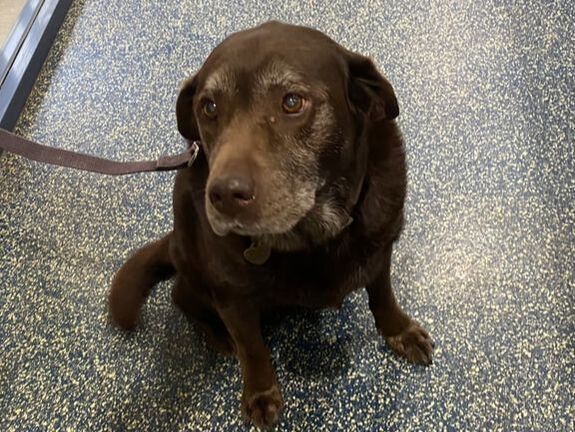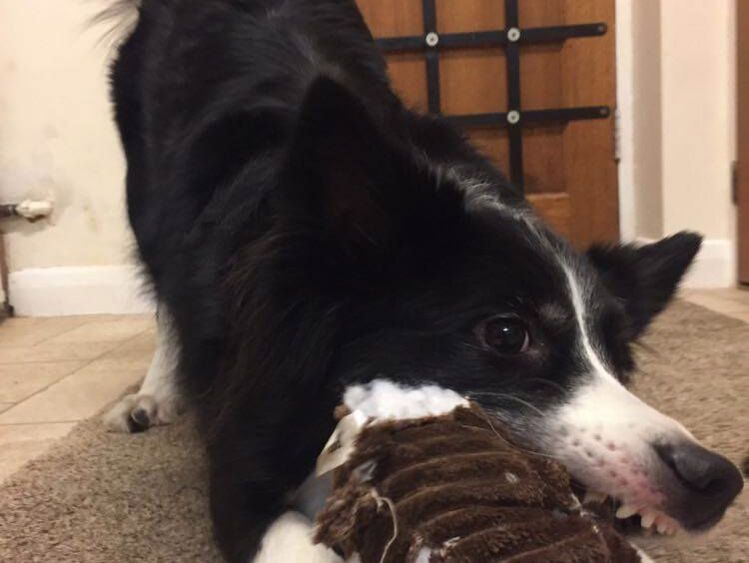 Do you have a dog or cat with behaviour problems? Have you taught your pet the basics but just not sure how to take that next step with your training? Then book a consult with Dr Emma Vermeeren from Animal Behaviour Coaching whilst she visits the Island from the 1st – 5th of May 2020. Many of you may remember Emma, Deb and Greg’s daughter, who is now a veterinarian and certified dog trainer practicing in Keith, SA. Emma is passionate about educating pet owners and ensuring that everyone has ready access to the most humane, up-to-date, and scientifically proven training methods. Emma also has experience and further education in diagnosing and treating dogs and cats with behavioural issues, including phobias, anxiety, and aggression.
1 Comment
 Cassie Handley is a 13 year old Labrador who has been a patient at the clinic since she was a puppy. She visited the clinic for her annual vaccination in July last year. At this visit Cassie’s dad was a bit worried that Cassie had put on a lot of weight (6 kilograms or 21% increase since the last visit 6 months previously) and that she seemed to be quite lethargic. Dr. Liberty Hogg examined Cassie and had a discussion with Cassie’s dad about our health care recommendations for ageing pets. A blood screen was performed and the results confirmed Dr Hogg’s suspicion that Cassie was suffering from hypothyroidism (under activity of the thyroid glands). This means her thyroid glands were not producing enough thyroid hormone, a hormone that is important for controlling the body’s metabolism. Ninety percent of all cases of hypothyroidism in dogs is caused by inflammation or shrinkage of the thyroid gland generally due to an autoimmune condition. Rarely it can be caused by cancer.  For full descriptions of all of the exercises below please visit: https://www.animalbehaviourcoaching.com.au/blog/stay-at-home-enrichment Stay-at-home enrichment activities are suitable for any dog to try as an addition to regular exercise, or as a substitution for those dogs that cannot be exercised due to illness or injury, cannot be walked for the safety of themselves or others, or for dogs whose owners are unable to exercise them. When determining the best suited enrichment activity for your dog, you will first need to observe how your dog interacts with its environment. You then need to develop activities to enhance the environmental and behavioural opportunities for your dog in its daily activities. Your dog is more likely to succeed at activities that it naturally finds enjoyable. The ideas provided are by no means an exhaustive list, and not all activities will be suited to all dogs or situations. It is important that you trial different ideas, under supervision initially, to determine what works best for you and your dog. The team at the Kangaroo Island Veterinary Clinic would like to say a big THANK YOU to everyone that donated money to help treat animals affected by the fires in January.
In total, we administered treatments to the value of nearly $80,000 to a range of pets, working dogs, farm animals and wildlife that we deal with every day. This was a busy and distressing time for the team, with one member also losing her house in the fires. The donations received, which totalled nearly $30,000, and the generosity shown were a great help to the team and team morale and to all of the animals that needed care. The vast majority of the animals seen and treated by the Clinic team made a full recovery from their injuries thanks to the generosity of those who contributed in this time of need. Once again – THANK YOU. |


 RSS Feed
RSS Feed
